Impartial training and careers advice
Call us: +441983 280 641
+441983 280 641

Requirements for Yachtmaster Offshore exam
There is some confusion around the requirements for the RYA Yachtmaster Offshore Coastal or Offshore exam. We hope this guide helps explain these requirements.
Whats covered
In this post, we will answer the following questions:
Sea time requirements for the Yachtmaster Offshore exam
Qualifying passages.
- If my sea time is all on Superyachts
- How to record my sea miles
Converting from sail to power
- What first aid qualification do I need
- Power or Sail?
Commercial endorsement
- Do I need RYA Yachtmaster Theory
- What other skills do I need for the RYA Yachtmaster
To sit the RYA Yachtmaster offshore exam, you are required to have, as a minimum, the following experience. All completed within the last ten years:
- A minimum of 2,500 miles are logged before you sit the exam. At least half the sea time must be in tidal waters.
- 50 days at sea on yachts up to 500GT.
- During your qualifying sea time, you would have completed five passages of over 60 miles **. Two of these passages would have been at night, and two acting as skipper. All five qualifying passages must have been on a vessel between 7 and 24m in length.
- At least five days experience as skipper.
- Please note if you hold an STCW Elementary First Aid, then it must have been issued in the last five years .
- For RYA First Aid, it’s three years.
- A GMDSS short-range VHF radio certificate
Click here if you need to refresh your STCW Elementary First Aid or complete a GMDSS short-range VHF course .
To sit the Yachtmaster Offshore exam, you MUST have completed at least five passages of over 60 miles.
A 60-mile qualifying passage is defined as:
A non-stop voyage from departure port/anchorage A to departure port/anchorage B (Points A and B can not be the same place).
The 60-mile passage must be a continuous passage. The distance, in this case 60 miles, must be measured as a straight line from port A to port B.
**Qualifying passages must be completed on a vessel less than 24 meters.
Acting as Skipper
The skipper is the person nominated and responsible for planning the passage. The skipper is not necessarily the most experienced or qualified person on board but must be the person with responsibility for the safe execution of the passage.
If the skipper’s role is transferred to another person at any time during a passage then neither person can claim to have skippered that passage.
What if all my sea time has been on Superyachts/vessels over 24m in length?
The RYA accepts that 50% (1,250) of the qualifying sea miles gained on a vessel over 24m can be used towards the 2,500 miles required for the Yachtmaster Offshore exam.
You should provide a testimonial or Discharge book confirming 1,250 sea miles.
The other 50% of the qualifying sea time must have been completed on vessels between 7 and 24 meters in length . Some Superyachts have large tenders and chase boats. In this case, any miles gained at the helm go some way to 1,250 sea miles.
Sea time requirements for RYA Yachtmaster Coastal
- 30 days at sea on a vessel less than 24m in length, and a minimum of 800 miles logged before you sit the exam. At least half the sea time must be in tidal waters.
- Two days as skipper, on a vessel less than 24m in length.
- 12 night hours.
- Short-range radio certificate (VHF), or equivalent.
- A valid First Aid certificate.
- You must be 17 years old at the time of the exam.
If you hold the RYA Coastal Skipper course completion certificate, then the miles required for Yachtmaster Coastal are reduced to 400.
To convert from Yachtmaster offshore sail to Offshore (Power) you must have completed, in the last 10 years:
- Minimum of 1,250 miles on a vessel between 7 and 24 meters in length
- 25 days living onboard
- 3 days as skipper
- Three passages of over 60 miles, including one overnight and one as skipper
How do I record my sea time for the RYA Yachtmaster exam?
The miles that you have gained on vessels between 7 and 24 meters in length in the past ten years can be recorded in either:
- RYA’s G158 logbook
- A CV detailing your sea time
- An Excel spreadsheet
When recording experience at sea, make sure you detail the following:
- Dates the passage/trip took place.
- Name and type of vessel
- Details of the passages
- Miles sailed on the passages
- Night hours (if applicable)
Flying Fish has created a simple spreadsheet that you can use to record your sea miles. Yachtmaster power personal log
What First Aid Qualification do I need for the RYA Yachtmaster Offshore?
You must have a valid, in-date first aid qualification to sit the Yachtmaster Coastal or Offshore exam. RYA first aid, STCW, Seafish first aid certificates are all accepted by the RYA.
If you hold the STCW Elementary First Aid certificate that was issued more than 5 years ago, then you will need to refresh your first aid qualification before sitting the Yachtmaster exam.
Power or sail?
The RYA offers two practical schemes depending on whether you want to skipper a Power or Sail. boat. Both schemes lead to the RYA/MCA Yachtmaster Offshore Certificate of Competence. The requirements for the Yachtmaster Offshore power or sail qualification are the same, minimum of 2,500 miles, etc.
Many choose to commercially endorse their RYA Yachtmaster Coastal or Offshore exam qualification after completing the RYA Yachtmaster exam. If this is your chosen path, then in addition to holding a valid first aid and VHF certificate listed above, you will need the following:
- Either an ENG1 or ML5 medical
- STCW or RYA Sea survival certificate
- Complete the RYA’s online PPR course
Once you have completed these three steps, you can apply for commercial endorsemen t through the RYA.
STCW Endorsement
Complete STCW Basic Safety Training , then the RYA/MCA Yachtmaster Offshore certificate will be endorsed to allow the holder to skipper a commercial or privately owned vessel up to 200 gross tonnes, which may be greater than 24m in length.
Do I need RYA Yachtmaster Theory?
In short, yes. To become an RYA Yachtmaster offshore then, you need to be able to navigate as well as handle the boat at sea. Furthermore, holding the RYA Yachtmaster Theory as well as your Yachtmaster Offshore certificate of competence is required if your goal is the Officer of the Watch 3000GT. If you have not sat at the chart table for a while, then consider a combined Yachtmaster Offshore Theory and practical prep course .
What other skills do I need before I join a prep course?
If you are considering a Yachtmaster Prep course then Flying Fish will provide some pre-course reading. If you did some background reading before your prep course, it would help if you had a good knowledge of the following:
- I.R.P.C.S (rules of the road) and distress signals.
- Weather. The passage of frontal depression, sea breeze, fog, effects of wind and tide, and terminology used in a weather forecast.
- Navigation. Understand how to calculate tidal heights, course to steer, and estimated position.
- Ability to tie the basic knots.
- Have knowledge of Radar, rule 19, and how to use it for collision avoidance.
- The G158 logbook provides all sea time requirements and a section where you can record all your sea time.
Got a Question?
Complete our short form for a prompt response and world class tax advice.
Yes please contact me regarding mortgages
By selecting this, you agree to the Privacy Policy .
Sign in to your account
What is an rya yachtmaster offshore exam.

The RYA Yachtmaster Certificate of Competence is a much sought after qualification for skippers.
This qualification is respected worldwide.
One will be able to acquire the RYA Yachtmaster Certificate if they are able to demonstrate that they have sufficient sea-time, experience and certification in order to sit for an exam.
There are also courses that can help one to be properly prepared for the exam.
Sea Time Experience
Course duration, course content, converting from offshore sail to offshore power, qualifying passages, all my sea time was on superyachts over 24m - is that ok, how to log miles for your rya yachtmaster exam, do i need any first aid qualifications, what about commercial endorsement, stcw basic safety training endorsement, is rya yachtmaster theory required, how do i become a yacht captain, do rya yachtmaster qualified yacht captains make much money, rya yachtmaster offshore course overview.
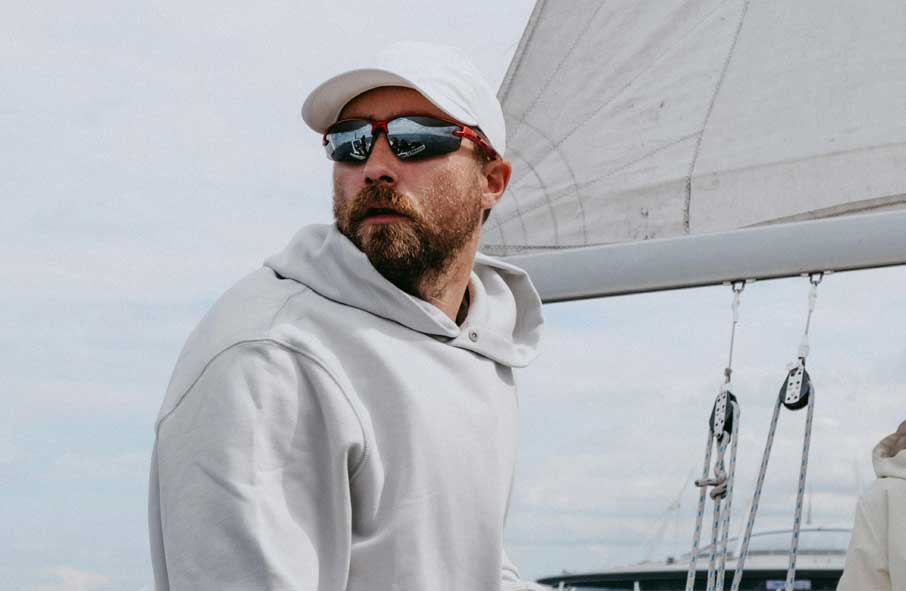
Sea time experience is one of the most important prerequisites.
You would need to have completed the following within the last ten years:
- At least 2500 miles logged.
- Spent 50 days at sea on yachts of up to 500GT.
- At least half the sea time must have been spent in tidal waters.
- Have completed five passages of over 60 miles, of which two passages were as a skipper, and two carried out at night.
- Have at least five days experience working as a skipper.
- Hold a valid First Aid Certificate. In the case of a STCW Elementary First Aid it needs to have been issued within the last five years, whereas in the case of an RYA First Aid it needs to be issued within the past three years.
- Be in possession of a GMDSS short-range VHF radio certificate.
The course duration is generally 5 days, including the exam.
The course content will comprise key areas that will allow one to be properly prepared for the exam.
The instructor will focus on areas where one needs to improve.
Notably, night sailing and blind navigation will be practiced.
There will be an overview of the lights, signals and collision regulations, among others.
Since different ports and harbours will be visited, you will be able to get tested in different waters, and your strengths and weaknesses will be better tackled in preparation for the exam.
The Yachtmaster Offshore Exam itself will take anywhere between 8 to 12 hours for a single candidate, or between 10 to 18 hours for two.
Candidates will be met onboard by examiners who will outline what will happen during the test.
Tasks will be set for the candidates to demonstrate their abilities as skippers of offshore cruising yachts.
Candidates should be well prepared as questions on any part of the syllabus can be asked at any stage.
Examiners will be independent assessors who evaluate candidates on behalf of the UK Maritime and Coastguard Agency .
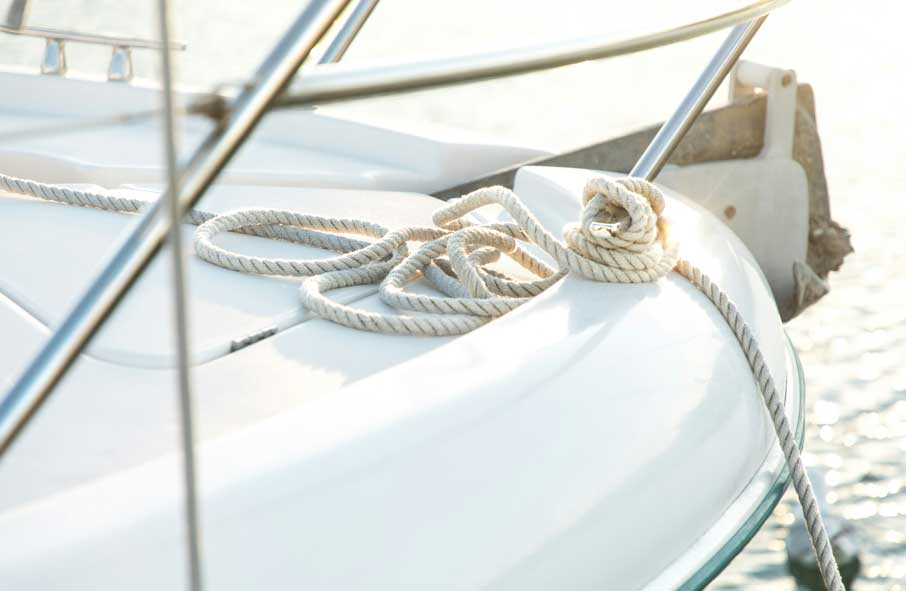
In order to convert from Yachtmaster offshore sail to Offshore Power the following will need to have been completed within the past 10 years:
- At least 1250 miles on a vessel that was between 7m and 24m in length.
- Have spent 25 days living onboard.
- Have spent 3 days as a skipper.
- Have carried out 3 passages exceeding 60 miles, of which one was as a skipper and one overnight.
There are a number of rules that need to be followed when it comes to passages that can be deemed as qualifying.
An applicant will need to have completed at least five passages which exceed 60 miles.
These five passages must have been completed on a vessel that is less than 24 metres in length.
Two of these passages need to have been overnight passages.
In addition, two of them will need to have been where one acted as a skipper.
It’s important to mention that a 60 mile qualifying passage is one where the voyage has been non-stop from the departure port A to departure port B, where A and B cannot be the same place.
The 60 mile distance has to be measured as a straight line from A to B.
The RYA will accept passages that were on board yachts over 24m in length.
However, only 50% of the qualifying sea time can be derived from such passages.
Thus, not more than 2500 miles in all, and one would need to provide a testimonial or a discharge book to confirm them.
The remaining 50% of the qualifying sea time must have been carried out on vessels which ranged between 7m and 24m.
Since so much importance is placed on passages, it’s crucial to record the miles.
Recording miles can be carried out in a RYA logbook G158, or using an Excel spreadsheet.
It’s also good to have a CV detailing one’s sea time.
When logging miles it’s important to take note of key details, including the dates of the passage or trip, the miles sailed on the various passages, the name and type of vessel, and any night hours.
Yes, you must have a valid first aid qualification in order to sit for the Yachtmaster Coastal or Offshore exam.
There are different types of first aid qualifications that are accepted, including:
- The RYA First Aid
- The STCW Elementary First Aid
- Seafish First Aid
It’s common to choose to commercially endorse the RYA Yachtmaster Coastal or Offshore exam qualification once the exam has been successfully completed.
In this case, besides holding a valid first aid and VHF certificate, one will also need an STCW or RYA Sea Survival certificate, as well as either an ENG1 medical certificate or an ML5 medical certificate .
One will also need to complete the RYA’s online PPR course.
Subsequently, one can apply for commercial endorsement through the RYA.
Following STCW Basic Safety Training , the RYA/MCA Yachtmaster Offshore certificate can be endorsed in order to allow the holder to be a skipper both on commercial as well as privately owned vessels.
This includes those exceeding 24m in length.
Yes, in order to become an RYA Yachtmaster Offshore it is highly recommended to know specific aspects of navigation and being able to handle a vessel at sea.
Thus, following a Yachtmaster Offshore Theory course is advisable to improve one’s abilities and competence.
This will inevitably improve one’s chances of successfully achieving the RYA Yachtmaster Certificate of Competence.
Becoming a yacht captain takes several years of training, experience and qualifications.
Like many careers, you’ll need to start life on a vessel working your way up.
From humble beginnings like being a deckhand to a junior crew member, the journey towards becoming a yacht captain takes years of dedication and hard work.
Our guide to becoming a yacht captain explains this process in greater detail.
Yes, the potential to make a very lucrative income is high.
A lesser experienced yacht captain can expect to make in the region of $48,000 to $98,000 per annum, whilst a more seasoned captain can make an impressive $150,000 gross per year.
So the time and effort it takes to become a skipper on a vessel has its rewards.
Furthermore, if your time at sea exceeds 183 days each calendar year, there’s the strong possibility that you could qualify for the seafarers earnings deduction which means you are not obliged to pay any income tax on your earnings.
So the above salary figures could be your final take home.
A good yacht captain will lead the crew, be a good communicator and instil confidence.
Acquiring the RYA Certificate is a demonstration that one has shown such skills along with the necessary experience.
Disclaimer: Any advice in this publication is not intended or written by Marine Accounts to be used by a client or entity for the purpose of (i) avoiding penalties that may be imposed on any taxpayer or (ii) promoting, marketing or recommending to another party matters herein.
Also on Marine Accounts
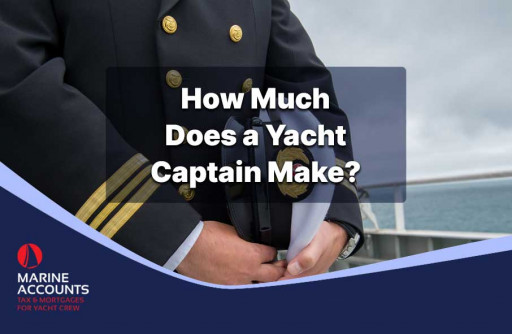
How Much Does a Yacht Captain Make?
Working as a yacht captain is a very privileged and unique employment position. In our article we explore what being a yacht captain involves and how much yacht captains make.
Patrick Maflin
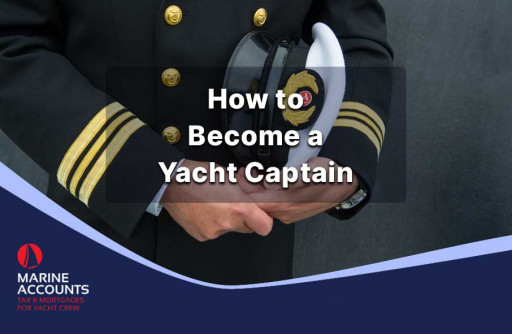
How to Become a Yacht Captain
Working as a captain on a superyacht can be a very rewarding career. But how do you become a yacht captain? Our article takes a deep dive into the process.
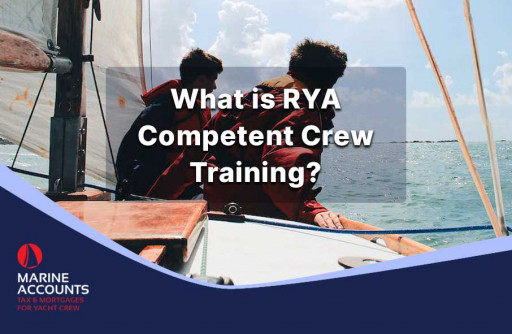
What is RYA Competent Crew Training?
RYA Competent Crew training is a beginners level sailing course, teaching basic knowledge and skills needed to become a competent crew member on a yacht. Read on to discover why even experienced yacht crew should consider taking this foundation course.
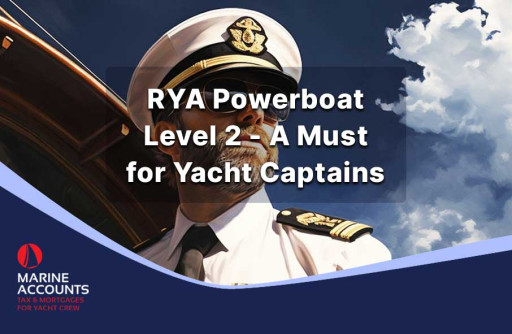
RYA Powerboat Level 2 Certificate - A Must for Yacht Captains
Gaining RYA powerboat level 2 certification is a must for any aspiring yacht captain. In our latest article, we explore what this crucial certificate is for, what you will learn, and how you go about getting one.
Before you go...
You're about to visit a page on our legacy site. We're currently in the process of updating all our tax tools and while this page is still active please return to the main Marine Accounts site after completition.
Refer a friend and receive £50!
Upon successful completion of the referral the cash will be transferred to you.
- RYA/MCA Yachtmaster Offshore Preparation & Exam
National Yachting School » RYA Sail Crusing Courses » RYA/MCA Yachtmaster Offshore Preparation & Exam
Yachtmaster Offshore is competent to skipper a cruising yacht on any passage during where astronavigation is not necessary.
An RYA/MCA Yachtmaster Offshore Certificate of Competence is often the ultimate aim of aspiring skippers. It is a well known, highly respected qualification worldwide, proving your experience and competence as a skipper.
To attain the RYA/MCA Yachtmaster Offshore candidates must pass a practical examination of their skippering ability. A Yachtmaster Offshore is capable of skippering the yacht on extended offshore passages by day or night. He or she will essentially be a much more experienced Yachtmaster Coastal and can do the same things more smoothly, for longer periods and in more arduous conditions. The theory knowledge required for the RYA/MCA Yachtmaster Offshore Certificate of Competence is the same as that for Yachtmaster Coastal, but considerably more practical experience and skill is required.
The 4 days prior to the exam is run along the same lines as the Yachtmaster Coastal preparation. Your instructor will asses your skills and address any areas over weakness. A high level of boat handling under various conditions of wind and tide is required. Navigation skills should be at the level of Yachtmaster/Coastal Skipper theory and a thorough knowledge of collision regulations is expected. Your instructor will tailor the course to suit your individual needs in order to prepare you for when the examiner steps on board.
After 4 days your instructor will give you a thorough debrief and you should feel confident in your ability to take the exam should you feel ready to do so.
During the exam, your RYA examiner will meet you onboard and talk you through the plan for the day. They understand that you could be nervous and will do their best to allay your fears and make sure you are clear about what they want you to do. They are there to find out what you can do, rather than pick holes. You will be asked to undertake a short passage, but you may have to plan a longer one. In general, you should skipper the yacht in your normal style. If this means putting the kettle on every half hour, then do it!
Your examiner isn’t looking for first-time-every-time success, but you will need to demonstrate competence and a good understanding of how the boat reacts at various situations. Don’t hesitate to change sails or reef, if you think it is necessary for the task.
Whether you are fully in command of the yacht is the most important assessment that your examiner will make. Especially with Yachtmaster Offshore the examiner will be looking for high level of proficiency based on broad experience.
Course Duration: 4 days for the course and 2 days for the exam. Most courses start on Saturday evening and finish on Wednesday afternoon, the exam starts the same evening or the next morning after the end of the course.
Previous Experience Required: 50 days aboard, 5 days as skipper, 2500 miles logged (min. half of it MUST be in tidal waters!), 5 passages of over 60 miles including 2 overnight and 2 as skipper. VHF radio operators certificate (SRC or higher) and a valid First Aid Certificate recognised by the RYA. click here for the list of acceptable first aid certificates
Course Overview: Preparation and brush up for the RYA/MCA Yachtmaster Offshore Certificate of Competence. Revision of advanced skippering techniques, close quarters handling under power and sail, navigation and pilotage by day and night, man overboard recovery and overall yacht management skills.
Minimum age: 18
Course price DOES NOT INCLUDE:
- exam fee paid directly to the RYA (205 GBP for YM Offshore, 177 GBP for YM Coastal)
- examiner's travel expenses from/to th UK (estimated approx. 400–500 Euro, shared between exam participants)
- food, harbour fees and diesel used for the boat
There are currently no available dates.
Due to the coronavirus crisis, we are canceling all practical courses in Croatia until further notice. For new course dates, please keep an eye on our website.
Winter courses on Canaries
In NYS we believe that there’s no such a thing as winter in sailing and you can always find a good place to enjoy your hobby any time throught the year. So we offer popular winter courses again, this time on Canary Islands, starting from Tenerife because of the best flight connections.
RYA Sailing Accreditation Rated as the World’s Best
The Royal Yachting Association (RYA) sailing qualifications have been voted the premiere sailing accreditation for excellence and global reputation following a recent survey targeting 200 professional yacht and motorboat charter companies. The professional charter companies that were surveyed own and manage in excess of 6,000 charter boats across the Mediterranean, Caribbean and Asia.
- Sail Cruising courses
- Commercial Endorsment
- Rent a boat
- Sailing equipment
- Yachting publications

National Yachting School Skola jachtingu s.r.o. Makovskeho namesti 3147/2, Brno, Czech Republic
Phone: +420 731 745 273 Phone: +421 902 896 099
Web: www.skolajachtingu.cz E-mail: [email protected]
(c) 2011-2024 National Yachting School - Sailing Courses, Skipper Licences
Links exchange | Site map | Top designed by čekit.cz
Online Courses
- What is RYA?
- NYS Instructors
- RYA Training Centre
- Terms and Conditions
- RYA Sail Training Ladder
- RYA Competent Crew
- RYA Day Skipper
- RYA Coastal Skipper
- RYA/MCA Yachtmaster Coastal Preparation & Exam
- Shorebased Theory Courses
- RYA Basic Sea Survival / World Sailing Personal Offshore Survival course
- Short Range Certificate


RYA Yachtmaster Offshore
Find out About the Yachtmaster Offshore Theory & Practical Training, (both Online & Shorebased)
Use the global Yachtmaster Offshore Directory to Find a Course Near me (Select any Location)
Page Navigation
- RYA Yachtmaster Offshore 200GT
- RYA Yachtmaster Offshore Requirements
- Course Breakdown
- RYA Yachtmaster Offshore Limited Theory
- RYA Yachtmaster of Yachts Practical Course
- RYA Yachtmaster Offshore Practical Examination
- RYA Yachmaster Offshore Certificate
- RYA Yachtmaster Offshore Commercial Endorsement
RYA Yachtmaster Offshore (Yachtmaster 200GT & 150NM Limited)
An RYA Offshore certifies an individual as competent to captain a vessel up to 24m in length and no more than 200 Gross Tonnes. The offshore certification is applicable passages during which the yacht is no more than 150 miles from harbour.
The Yacht master offshore consists of two components:
- Yachtmaster Offshore Theory
- Yachtmaster Offshore Practical
Both components can be done on an individual basis but in order to achieve a commercial endorsement for the yachtmaster offshore certificate of competency, both the theory and practical examinations must be passed.
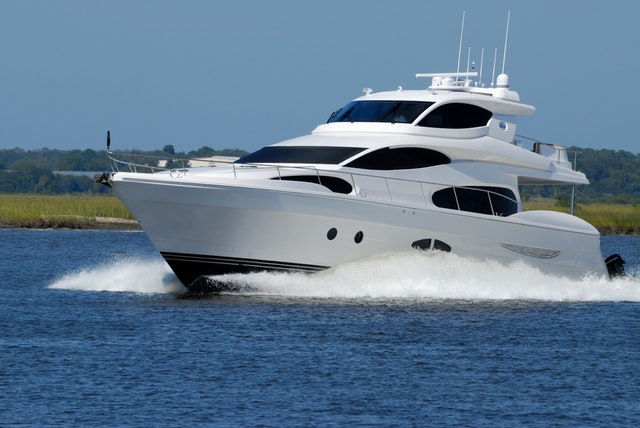
Yachtmaster Offshore Requirements:
In order to be eligible to take the Yachtmaster Offshore practical exam, candidates must meet the minimum sea time requirements.
The RYA Yachtmaster Offshore minimum sea time prerequisites are as follows:
- 50 days at sea on yachts up to 500GT
- 5 days as skipper on vessels less than 24m LOA
- 2500 miles on yachts up to 500GT
- 5 passages over 60 miles long, which must include 2 overnight passages and 2 as skipper
If a candidate already holds an RYA Yachtmaster Offshore Certificate of Competence for a different vessel type (Ie. power or sail) then the above prerequisites are adjusted as indicated on the RYA's Yacht Master Offshore Exam page.
Yachtmaster Offshore Course Breakdown
The Yachtmaster Offshore course consists of a 40-hour (minimum) theory course (excluding exam time), 5 days of practical training and preparation followed by a 2-day practical examination.
Yachtmaster Offshore Theory:
The following topics are covered during the Yachtmaster Offshore theory course:
- Position fixing,
- Course shaping and plotting,
- Tidal knowledge,
- Use of almanacs and admiralty publications,
- Electronic position finding equipment,
- Taking and interpreting forecasts,
- Plotting weather systems,
- Weather predictions using a barometer.
- Certificate issuing criteria
Yachtmaster Offshore Theory Online
The RYA Yachtmaster Offshore Theory can be studied in an online or virtual distance learning format. The online version of the course allows students to work through the training content at their own pace, which may benefit those who are working with little time off.
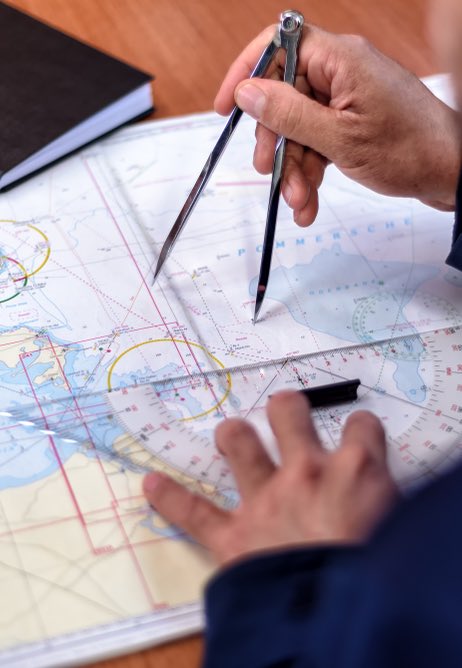
Yachtmaster Offshore Practical
Although there is no formal training course leading up to the RYA Yachtmaster Offshore Practical exam, it is common for yacht crew to complete a practical training course, leading up to the exam. This may vary slightly between schools but should be done at an RYA accredited center.
The exam will include an assessment of your skippering skills, boat handling, general seamanship, navigation, safety awareness and knowledge of the IRPCS, meteorology and signals.
RYA Yachtmaster Offshore Practical Exam:
A valid GMDSS-approved SRC Radio Operators Certificate and a First Aid Certificate are requirements for the RYA Yachtmaster Practical examination. The Elementary First Aid Certificate as acquired during STCW Basic Training is an accepted version. For recreational sailors, an RYA First Aid certificate is sufficient.
In addition to this, candidates need to ensure that they have met the minimum sea time prerequisites as highlighted above.
Practical Exam Assessment:
The exam will include an assessment of:
- The candidate's skills as a captain,
- Boat handling ability
- General seamanship,
- Navigation planning and execution
- Safety awareness and procedures
- Knowledge of the IRPCS,
- Meteorology,
- Lights, shapes, sounds, and other signals.
Practical Exam Duration:
- 8-12 hours for 1 candidate,
- 10-18 hours for 2 candidates.
- No more than two candidates can be examined in 24 hours and no more than four candidates can be examined in one 2-day session.
RYA Yachtmaster Offshore Certificate
Students who pass their Yachtmaster Offshore practical and theory examinations will be awarded an RYA Yachtmaster offshore certificate of competency. It is important to understand that CoC is a recreational license until it is commercially endorsed by the MCA.
RYA Yachtmaster Offshore Commerical Endorsement
In order to commercially endorse your Yachtmaster offshore certificate, you will need to submit the following:
- Original Yachtmaster Offshore certificate
- RYA Professional Practices and Responsibilities certificate
- an RYA commercial endorsement application form
- Your original, completed ML5, ENG1 , or an ENG1 equivalent medical form.
- A copy of your RYA Basic Sea Survival certificate or STCW Personal Survival Techniques
- A copy of your RYA Marine Radio SRC Certificate or other acceptable GMDSS Marine Radio Operator's Certificate .
- A passport-sized photo with your name on the back
- The application fee
RYA Yachtmaster Offshore License
A license card/ book will be provided to those who pass the relevant Yachtmaster offshore examinations. The license will include a photo, and details about the license holder, and will also include information about the endorsements associated with the license.
RYA Yachtmaster Offshore Training School Locations
Brazil Sao Paulo
Croatia Split
Greece Corfu
South Africa Cape Town Langebaan

Spain Barcelona
Turkey Marmaris
United Kingdom England Ireland Scotland
West Indies Antigua
Username or Email Address *
Remember me Lost your password?
Username or Email
Get New Password

RYA/MCA Yachtmaster Offshore Prep + Exam

***Please Note: In addition to the normal RYA requirement we request that all our YM candidates have completed at least 1000 NM as skipper***
Full RYA requirements for taking your Yachtmaster Offshore Exam are here .
The purpose of the YM prep is to refine existing skills, not to start learning new ones. If you are considering taking your YM Offshore Exam you should already be an accomplished, experienced and adaptable sailor . The 5 day prep allows us to hone these skills and pick up any bad habits that the examiner may not approve of. This will be a technically challenging week with a lot of night hours.
The actual syllabus that will be tested is similar to Coastal Skipper, but the examiner will looking for a greater consistency and depth of knowledge .
During the prep your instructor will regularly debrief you on your progress, towards the end of the prep they will make their recommendation whether or not you should go for the exam. If they recommend that you don’t they will give you clear feedback on the areas that you need to improve.
Despite the technically demanding nature of the YM prep these courses are a huge amount of fun and we always do plenty of exciting and rewarding sailing in them.
The examiner will also request a passage plan to be prepared, so they can discuss it with you. We’ll provide you with all the necessary charts for this during your prep week.
We recommend you complete your Yachtmaster Theory Course before starting your YM Prep, or be at a similar standard with your navigation and IRPCS. It’s also increasingly important to have a good understanding of radar. All this knowledge needs to be fresh and up to date before you start your prep. There’ll be some homework we’ll set that will help with this. This will be done through our online resources. Purchasing this course gives you one-year complimentary access to all our video tutorials and other online resources.
What’s included: Food, fuel and accommodation onboard. Mooring fees are shared amongst crew, and we suggest you budget approximately £50 for this course. RYA Exam fees are additional £231. Please see our Crew Kit List for details of what you should bring.
To see what else makes PSS standout see here.
If no dates are available in the calendar below, please contact us for availability.
It’s very important to us that we get you on the most suitable course or voyage for your level and for your future sailing ambitions. If unsure which course you should book, or to discuss your sailing plans, do get in touch.
Duration: 5 days + 2 day Exam
Previous Experience Required: Minimum 50 days aboard, 5 days as skipper, 2500 miles logged, 5 passages of over 60 miles including 2 overnight and 2 as skipper (Half the qualifying sea time must have been conducted in tidal waters). VHF radio operators certificate and a valid first aid certificate. Current theory knowledge to RYA Coastal/Yachtmaster theory level.
***Please Note: In addition to the normal requirement we ask that all our YM candidates have completed at least 1000 NM as skipper***
Ratio: Upto 4:1
Price: £995 inc VAT + Exam Fee (£241) ( solidarity price £597 + Exam Fee)
See all dates on the calendar at the bottom of this page. To reserve your place on this course sign up through our booking form here:
© 2021 All rights reserved
Yachting Monthly
- Digital edition

How to pass your Yachtmaster exam
- Chris Beeson
- September 16, 2015
The global standard of sailing qualifications is achievable for any experienced, competent skipper. Tom Cunliffe explains how to pass your Yachtmaster exam
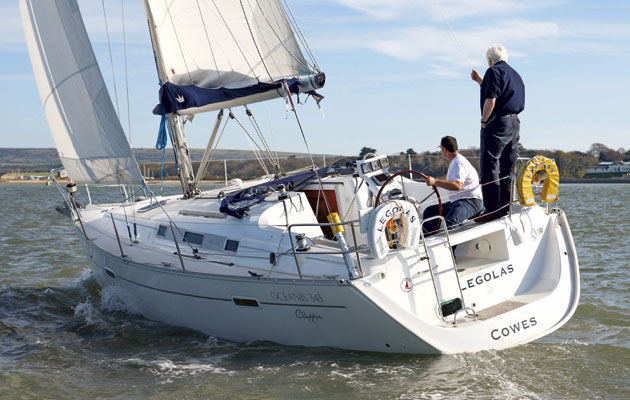
The only certificates accepted by the authorities are those issued after an at-sea examination. To become a fully-fledged Yachtmaster, the practical test is the only one that counts Credit: Graham Snook/YM

Tom Cunliffe is an RYA Yachtmaster examiner. He has passed and failed hundreds of Yachtmaster candidates over the years
We in the UK are exceedingly fortunate. Just as the English language is the best bet for a world traveller, our very own RYA/MCA Yachtmaster qualification happens to be the global standard for sailing. It’s required for anyone planning to become a professional and, thanks to the continuing efforts of the RYA, Brits who sail for leisure still don’t have to carry any proof of competence in home waters. Despite this blessed lack of regulation, the Yachtmaster certificate remains the logical target of many a self-motivated sailor. It also represents the icing on the cake for those looking for the reassurance of an external assessment.
Courses and exams
Yachtmaster training can take place on a boat or in a classroom. A shore-based course, either at desks in a school or via the increasingly popular Internet distance learning programmes, ends with a Yachtmaster theory exam. Success in this will help a student in subsequent qualification upgrades, but it is not officially recognised. The only certificates accepted by the authorities are those issued after an at-sea examination – the Yachtmaster Practical . To become a fully-fledged Yachtmaster, this practical test is the one that really counts.
Yachtmaster Prep

Meteorology matters: a favourite with examiners is to produce a weather map and invite you to analyse it. Be ready and know your subject
This is a non-RYA course and, as such, has no official status or syllabus. However, it is run successfully by many RYA sailing schools to prepare candidates for an examination which generally follows on at the end. Up to four students spend several days together on the boat in which they will be examined. The benefits are that they get to know one another and their yacht under the guidance of a highly qualified Yachtmaster Instructor. The general feeling is that these tutors can’t teach you much you don’t already know in a week, but that they are very good at coaching the best out of those skills you already have. Prep courses are great for brushing up on how to jump through the various hoops an examiner may set up. What they can’t do is make someone who doesn’t have suitably constructive mileage into the confident skipper examiners are looking for.
Coastal or Offshore – what’s my level?
Recently, the old Coastal Skipper ticket has been superseded by the new ‘Yachtmaster Coastal’ certificate. The qualifying mileage for this MCA-recognised qualification is 800, with passage and night-hour requirements being relaxed in comparison with ‘Yachtmaster Offshore’, which keeps its 2,500-mile entry level. Either is a proper Yachtmaster qualification and can be described as such. Only the often-dropped suffix distinguishes the two. The syllabi are identical, the variant is the rigour of the examination. Apply for ‘coastal’ and the examiner, recognising that you have less sea-time, will be more inclined to cut you a bit of slack.
The RYA has noted that most candidates are really only making ‘coastal-status’ passages. In real terms, this includes an annual trip across the Irish Sea, the North Sea or the Channel in a calculated weather window, which is very different from setting off from Ramsgate towards Norway with five days and potentially serious conditions ahead of you. The implications should be clear: unless you need the Offshore ticket for professional reasons, if in doubt, go for Coastal.
Preparing yourself and the boat
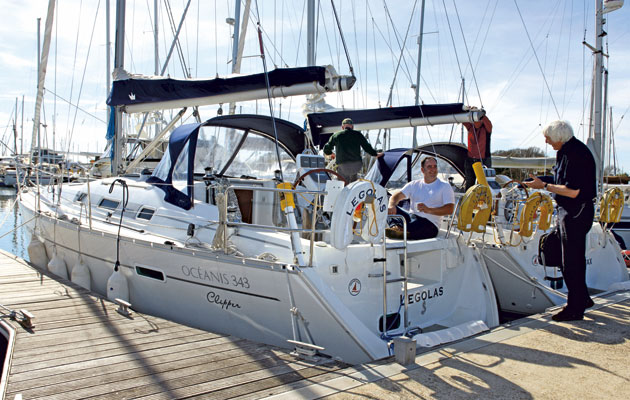
A relaxed candidate with a mug of tea makes a better impression than a harassed-looking one
If you’ve signed on with a sailing school, you’ll be stuck with the boat you’re given. You can be confident that this yacht ticks all the official boxes by being coded for commercial use, but while some are very up-together, others are not. If the boat is generally sloppy and scruffy, you can at least make an effort to stow the mainsheet in a seamanlike manner while you are nominally skipper.

Neatly coiled lines reflect well on the skipper
You can also ensure that fenders are hung at the same level, sharpen up the guardrails and see that things generally look as though somebody knows the difference and cares. Then the examiner won’t hold the ratty lifebuoys and the smelly bilge against you.

Mind that your dress and demeanour don’t make a bad first impression
Try to be ready in good time so that you aren’t involved in a last-minute kerfuffle. If you’re relaxing in the cockpit with a mug of tea when the examiner arrives, he or she will be more impressed than if you’re frantically working out tidal heights and scuffling through the chart table. Wear sensible kit. Don’t worry if it’s not this season’s fashion. My examiner turned up in an old duffel coat back in 1978 and I think I was wearing a canvas smock and a flat cap, but the smock was freshly laundered and the cap was right way round…
The main thing is that you can sail, but an examiner is always pleased to be freed of any hassle with the paperwork. Most of us are no better with admin than you are, so make our lives easy by producing an up-to-date first aid ticket and all the rest, plus a cheque made out to the RYA – not the examiner, perish the thought!
Passage planning

Your passage plan should be realistic. Keep it simple and be ready to adapt and update as things develop
You may be given the opportunity to produce a passage plan before the examiner arrives. If so, make it realistic. Don’t plot every course to the last degree. After all, you don’t know what speed you’ll make or what the wind will really do. Check tidal gates, distances, viable alternatives and the weather. Look at any hazards, sort out a time to leave and have a plan for updating as things develop. That’s about what you’d do if there were no exam, and that’s what I, at least, want to see.
Examination on your own boat
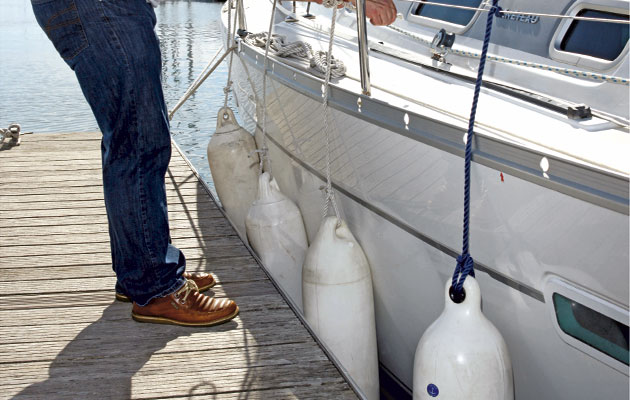
A nicely level line of fenders sends a good signal to the examiner
You don’t have to go to a sailing school to be a Yachtmaster. I love it when a candidate asks to be examined without training on his own boat. Don’t worry if she isn’t coded. There’s no legal requirement that she should be. Most of mine haven’t been either, and I couldn’t care less.
As an examiner, I want to see that your priorities are sound and that you’re thinking clearly and for yourself. On the day, the yacht must be clean, tidy and seamanlike. Waterline crisp, sail covers Bristol fashion, not looking like some poor bird with a broken wing, ropes carefully stowed, a comprehensive chart kit for the waters to be sailed, the makings of a meal plus snacks and, of course, everything that counts should be working.
What the examiner is looking for
Feeling relaxed in close quarters

Competent, confident boathandling counts well in your favour
If there’s one thing that will upset an examiner, it isn’t that you forgot to put on your lifejacket, it’s that he feels insecure when you begin manoeuvring in a marina. Take it from me, there’s nothing worse than sitting at the backstay wondering what you’re going to hit. If the boat slides sweetly out of her berth with everyone knowing what’s required and no shouting, then moves away easily with the examiner confident you’re in charge, that you’ve checked the next alleyway for collision risk, that your choice of speed is sensible and efficient and that it never enters his head to feel anxious, you’re well on the way to a pass after five minutes. No course can teach you this. It can only tick the box confirming you’ve managed it once or twice. The rest is up to you and your sea time.
Wind awareness
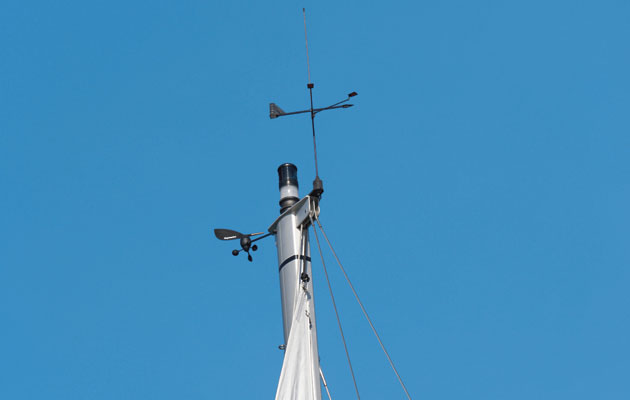
You should always be aware of the true wind direction and how it will influence any manoeuvres
Here’s another subject you can’t learn on a prep course. Knowing where the wind is and how it relates your position to any impending manoeuvres is critical. I often ask a candidate where the wind is coming from when he’s approaching a situation we both know will involve some sort of gyration under sail. If he looks instinctively at the masthead or, worse still, an instrument set to apparent wind, he’s dropped a bagful of points. At this stage, his mind should be setting up where the boat will best be placed to make her critical turns. Apparent wind isn’t going to help him much. What he should be doing is glancing at the water and noting the tiny ripples to assess what the true wind is actually doing. I’m often amazed at how many folk have never been shown how to do this. Racing sailors can handle it in their sleep, because they need to predict windshifts, but cruisers tend to get lazy, so make sure you can read the wind.
Good sailing
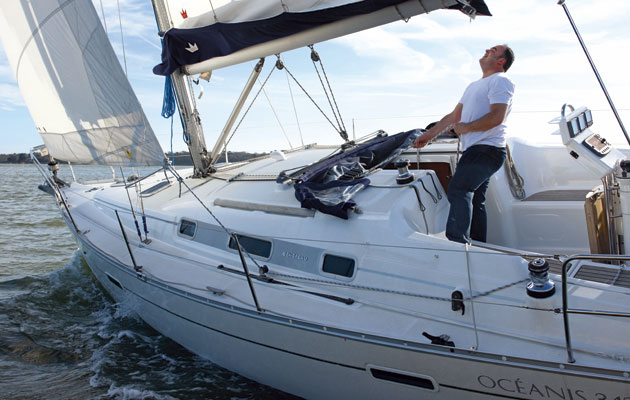
No need for incessant, race-style tweaking, but pay due attention to sail trim while the yacht is under way. If there’s a mainsheet traveller, use it
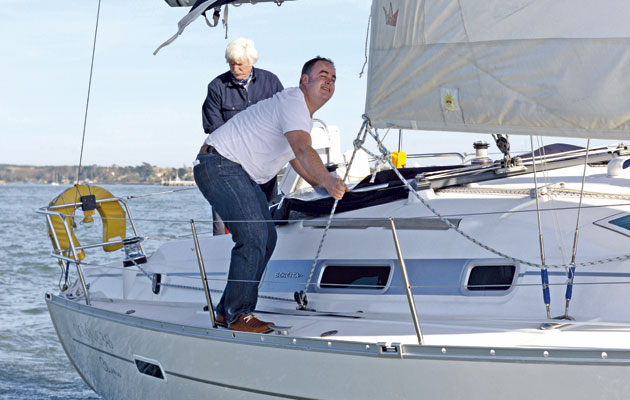
Ensure that the genoa sheet leads are properly positioned for the point of sail you’re on

Lovely: both mainsail and genoa set up with the right amounts of tension and twist
All examiners hate to see a yacht sloppily sailed on passage. Make sure that your crew are using the traveller, that genoa fairleads are properly positioned, that the main is well set up with kicker and mainsheet tension for twist. Above all, do not sail over-sheeted. It’s a dead giveaway that you just haven’t been out there enough yet.
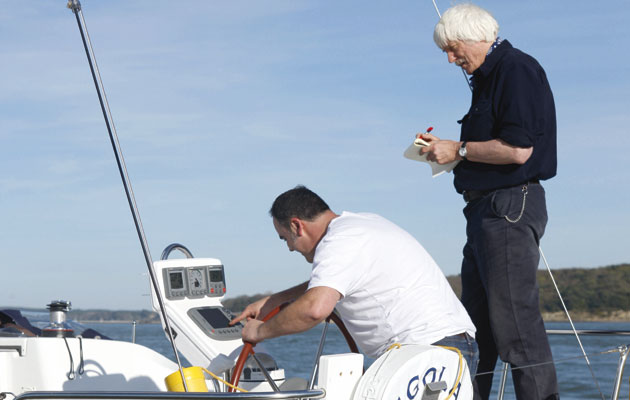
Too much staring at the plotter screen betrays nervousness
In the days before GPS set navigators free, people used to fail exams by what we called ‘sailing the chart table’ rather than skippering the yacht. Assuming the test to be all about some sort of imagined ‘correct navigational practice’, candidates nailed themselves to the navigatorium when they should have been up on deck directing operations and watching out for the ship coming up astern that was suddenly looking bigger every moment. Well, guess what? Nothing has changed. This remains a big problem with neophyte Yachtmasters.
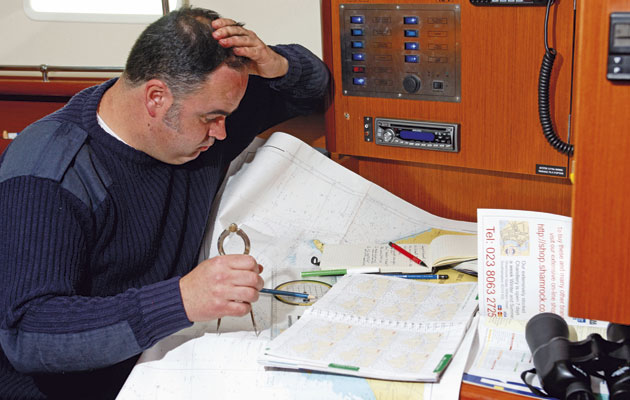
Sail the boat, not the chart table
The secret is to plan well, then nip below every so often on passage to keep an eye on what’s going on in the chart department and whizz back on deck pronto to carry on skippering the boat. I’ll lay a pound to a penny it’s what you do when there’s no examiner on board, so have the confidence to back your own usual practices. This is particularly important at night in crowded waters. An unsuccessful candidate often fails himself by allowing disorientation to creep in, simply by not keeping the true perspective on events, which can only be found on deck.
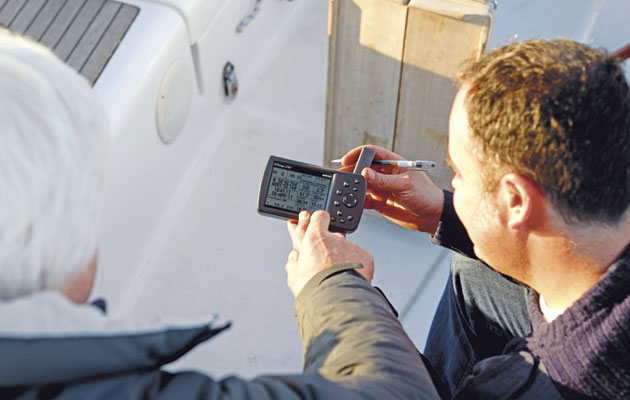
The use of electronic nav-aids such as GPS is not ‘cheating’ – it’s an integral part of navigation
All examiners have their own take on use of electronics. Personally, I want to know my candidate is making modern aids to navigation, including a chart plotter if there one, an integral part of his navigational policy. The idea, as one candidate suggested, that use of GPS is somehow ‘cheating’ is incomprehensible to me. I will almost certainly ask at some stage that the yacht be navigated classically, to see how easy my man is with what, for most people, are now backup skills. If I’m unconvinced by his performance, off he goes to think again.
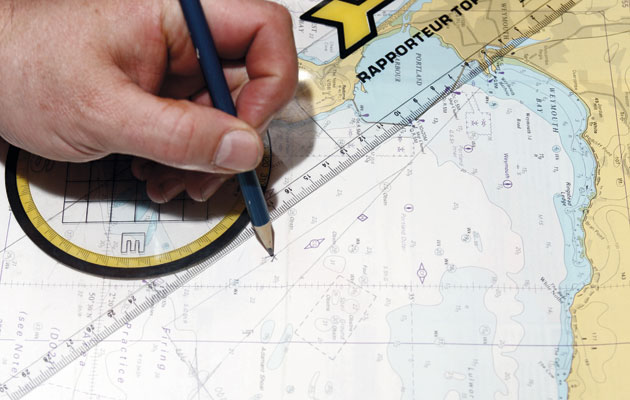
Your chartwork should be fluid and accurate
Skilled chartwork comes with use, and no amount of last-minute swotting can make up for weeks of doing it as a matter of course. Plotting traditional fixes is a good giveaway these days. With GPS all around us, we only do this for real when electronics fail. I’ve seen a person take 15 minutes to select three objects from a background studded with lights, then plot the results. The yacht had moved over two miles in the meantime…

It’s absolutely vital that you maintain a decent logbook during the exam
It’s absolutely vital, whether navigating with a giant chart plotter or a Walker log, that you maintain a decent log book. Without this, if GPS fails for any reason at all, you’re lost, Mate, so is your exam, and quite right too!
Take command
One of the most important questions on most examiners’ private lists is how good the candidate is at taking charge. If he’s managing well, we probably won’t even notice that he’s in command, that his crew all know what’s expected of them and that their skipper is quietly checking that they’re doing it. Good leadership is seldom about barking orders, and never about ignoring all on board, yet leadership is what being a Yachtmaster is all about. First, you must be sufficiently comfortable with your own skill levels not to have to worry about little things like picking up a mooring. Only then can you consider what may go wrong for the poor soul on the foredeck in a gale at midnight.
The classic skills
These are what most people imagine success in an exam is based upon. Actually, these basic skills merely help an examiner build up an overall picture of the candidate. It’s generally not a hanging matter if one manoeuvre goes a bit haywire. Even a grounding is often more interesting for what the candidate does about it than for the fact that it has happened. After all, nobody is perfect, especially under the stress of an exam.
Man overboard
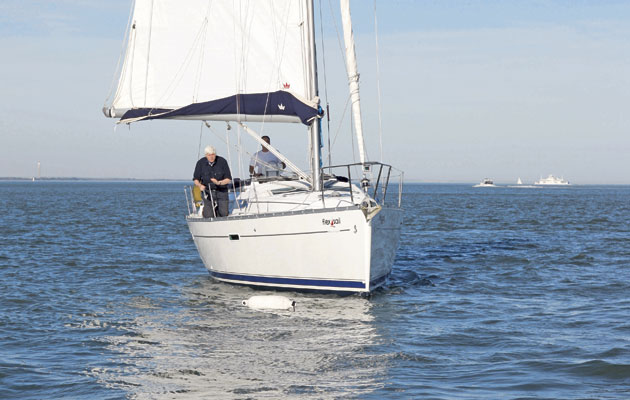
An effective, confidently executed man overboard drill speaks volumes about a candidate’s boat-handling ability but it’s not necessarily curtains if the manoeuvre goes a bit haywire
Errors in principle are not popular with examiners. Mistakes under pressure may sometimes be forgiven, and man overboard is a case in point. If the boat sails past the dummy with her mainsail full and the examiner asks, ‘What went wrong?’ It won’t get you much of a score if you reply, ‘I was going too fast.’
‘Candidate’s speciality, stating the bleeding obvious,’ the examiner will note on his pad, and move on, downhearted.
However, if you say, ‘I’m kicking myself because I was too far upwind and couldn’t de-power the main. I tried to get onto a close reach but I misjudged my approach,’ he’s more likely to take a lenient view – especially if you’ve opted for ‘Coastal’.
Securing the yacht alongside
When I was examining instructors regularly, I’d often sail up to Poole Quay (a tidal wall) shortly before closing time. I’d hop off the boat as soon as she touched the piling, saying, ‘You sort her out, skipper, I’m off for a quick pint.’ I’d then do just that. When I returned 10 minutes later, if the yacht was neatly snugged down with four lines ashore, ends on the dock, a fender board in place, sails neatly stowed and all hands below cooking and relaxing, the guy was in good shape for a pass. If I found discussions on deck about whether to ‘hand the end back for a spring’, and people blundering about in the dark, things didn’t look so bright for our hero. Have a system and know how to execute it.
… and don’t forget
Mooring and anchoring

Mooring and anchoring under sail should present no challenge to the aspiring Yachtmaster. When in doubt, drop the mainsail
These are Day Skipper skills that should pose no threat to a Yachtmaster candidate. Under sail, just remember first to assess whether the wind is with or against the tide. If you get lucky and it’s against, drop the main and arrive stemming the stream, spilling under headsail or creeping along under bare poles. If wind and tide are at all ambiguous, never forget the old adage – when in doubt, drop the mainsail.
Meteorology
As forecasting has become more comprehensive and accessible, I’ve noticed a reduction in candidates’ capacity to understand what’s going on and to read a bulletin creatively. Anyone who can’t describe the typical cloud sequence on a North Atlantic depression gets nil points from me, and failure to understand the basics of air masses is going to run up a black mark too. A favourite with examiners is to produce a weather map and invite their Yachtmaster to analyse it. Be ready, and know your subject.

Tom sees no reason not to have a chart in the cockpit, but some examiners disapprove of it. Be ready to justify your choice
Many candidates produce excellent pilotage plans for entering a strange harbour. I’m happy with that, and most examiners love it. Personally, I prefer to sketch a few notes on the actual chart and have it in the cockpit held down with a winch handle, yet I’ve met examiners who’d be horrified to see a chart on deck at all. So there you have it. Do what suits you best, then be ready to justify your choice. Actually, this advice is good across the board. The examiner wants to see what you really do, not some fantasy you’ve cooked up because you think he might like it. That is a weak candidate’s policy and it often backfires.

No shortcuts here, you just need to know your stuff – and finding the time to learn isn’t difficult
So far as the MCA is concerned, this is the crunch. Examiners are encouraged to demand high standards in this subject, and there’s no reason for a candidate, knowing full well he is to be put on the griddle, not to have the regulations burned into his heart. The best way to be exam-proof is to invest in A Seaman’s Guide to the Rule of the Road, available for modest money from all good chandlers or Bookharbour.com. Place it prominently in the heads some months before the exam and devote five minutes of the shining hour each day to digesting its wondrous contents. The book makes it easy and there’s no excuse for disappointing the Board of Trade!
For all the latest from the sailing world, follow our social media channels Facebook, Twitter and Instagram .
Have you thought about taking out a subscription to Yachting Monthly magazine?
Subscriptions are available in both print and digital editions through our official online shop Magazines Direct and all postage and delivery costs are included.
- Yachting Monthly is packed with all the information you need to help you get the most from your time on the water.
- Take your seamanship to the next level with tips, advice and skills from our expert skippers and sailors
- Impartial in-depth reviews of the latest yachts and equipment will ensure you buy the best whatever your budget
- If you are looking to cruise away with friends Yachting Monthly will give you plenty of ideas of where to sail and anchor

- $ 0.00 0 items
RYA/MCA Yachtmaster Offshore Exam
Full details of the exam syllabus and requirements are shown in the RYA’s Sail Cruising Logbook (code G158) available from APY. For more detials on the qualifying milage and passages click here . The RYA/MCA Yachtmaster™ Offshore Certificate of Competence exam will include an assessment of your skippering skills, boat handling, general seamanship, navigation, safety awareness and knowledge of the IRPCS (collision regulations), meteorology and signals. Candidates will be set tasks to demonstrate their ability and may also be asked questions on any part of the syllabus for all practical and theory courses up to Yachtmaster™ Offshore level.
What to Bring
Arrive RHKYC at 1000hrs and finishing at some time around 1600hrs the following day depending on the number of candidates.
Students require to bring the following (see FAQs for more detials):
- Lightweight sleeping bag or equivalent and pillow.
- Clothes suitable for 5 days sailing.
- Kit backed into a soft bag ( no hard suitcase).
- Weather proof clothing suitable for the time of year.
- Footwear such as deck shoes or trainers with good grip.
We can supply the school yacht at the standard charter rate or you can use your own yacht but it must be between 7m (23ft) and 24m (78ft) LOA and be in sound, seaworthy condition, equipped to the standard set out in the RYA book Cruising Yacht Safety (code C8). The boat must be equipped with a full up to date set of charts and navigational publications and be efficiently crewed, as the examiner will not take part in the management or take any responsibility for the boat during the exam.
The RYA/MCA Yachtmaster Ocean Theory course.
Important Notice
You are using an out of date version of Internet Explorer!
This browser may prevent this website from displaying and functioning as intended.
Please click here to upgrade.

Late notice spaces available for selected courses - click here for details
What is a Yachtmaster Certificate?
The RYA Yachtmaster Coastal or Offshore certificates are prestigious qualifications from the RYA, recognized worldwide, signifying a high level of competency in skippering yachts. It is a benchmark for professional skippers and enthusiasts aiming for excellence in sailing.
- An RYA Yachtmaster Coastal has the knowledge needed to skipper a yacht on coastal cruises but does not necessarily have the experience needed to undertake longer passages. A commercially endorsed RYA Yachtmaster Coastal Certificate of Competence will enable you to skipper vessels up to 24 metres in length, operating in category 3 to 6 waters – up to 20 miles from a safe haven.
- An RYA Yachtmaster Offshore is Competent to skipper a cruising yacht on any passage during which the yacht is no more than 150 miles from harbour. A commercially endorsed RYA Yachtmaster Offshore Certificate of Competence will enable you to work as a Master of commercial vessels of up to 200gt in category 1 to 6 waters – up to 150 miles from a safe haven.
What are the requirements for an RYA Yachtmaster?
To qualify for the RYA Yachtmaster certificate, candidates must meet specific prerequisites, including sea time, navigational knowledge, and practical skills.
RYA Yachtmaster Coastal Exam Prerequisites:
Sea Time Requirements;
- 30 days at sea on a vessel less than 24m LOA, which may be reduced to 12 days at sea on vessels less than 24m LOA if an RYA Coastal Skipper Practical course completion certificate or an RYA Yachtmaster Coastal Certificate of Competence is held.
- 800 miles, which may be reduced to 400 miles on vessels less than 24m LOA if an RYA Coastal Skipper Practical course completion certificate or an RYA Yachtmaster Coastal Certificate of Competence is held.
- Two days as skipper on a vessel less than 24m LOA
- 12 night hours.
Certification
- A GMDSS-compliant Marine Radio Operator’s Certificate such as the RYA Short Range Certificate or higher.
- An RYA First Aid Certificate or another valid First Aid Certificate, as detailed on the RYA website.
- RYA Coastal Skipper Practical course completion certificate (either Sail or Power, as appropriate) if claiming reduced sea time detailed above.
Minimum Age: 17 at the time of the exam.
Minimum Exam Duration: 6-10 hours for one candidate. 8-14 hours for two candidates.
RYA Yachtmaster Offshore Exam Prerequisites:
- 50 days at sea on yachts up to 500gt which may be reduced to 25 days if the candidate already holds an RYA Yachtmaster Offshore Certificate of Competence
- 2,500 miles on yachts up to 500gt, which may be reduced to 1,250 miles if the candidate already holds an RYA Yachtmaster Offshore Certificate of Competence.
- Five days as skipper on vessels less than 24m LOA, which may be reduced to three days if the candidate already holds an RYA Yachtmaster Offshore Certificate of Competence
- Five passages Over 60 miles long, which must include two overnight passages and two as skipper, which may be reduced to three passages including one overnight and one as skipper if the candidate already holds an RYA Yachtmaster Offshore Certificate of Competence.
Minimum Age: 18 at the time of the exam.
Minimum Exam Duration: 8-12 hours for one candidate. 10-18 hours for two candidates. No more than two candidates can be examined in 24 hours and no more than four candidates can be examined in one two-day session.
- At least 50% of your sea time must be in tidal waters.
- Sea time must be documented.
- Sea time must be completed on a seagoing sailing or motor yacht (as appropriate).
- Sea time must have been completed within the last 10 years

How Long Does It Take to Become a Yachtmaster?
The time to become an RYA Yachtmaster varies, depending on prior experience and the specific path chosen.
Typically, it can take several months to a few years. Our 18 week Yachtmaster Fast-track program offers a streamlined option which takes you from limited or zero sailing experience all the way up to a fully qualified RYA/MCA Yachtmaster, with all the required practical, theory courses, mile-building and sailing experience you’ll need to help get you qualified.
What are the RYA Yachtmaster minimum mileage requirements?
Candidates must accumulate a specific number of sea miles as part of their experience.
RYA Yachtmaster Coastal Sea Time Requirements:
Rya yachtmaster offshore sea time requirements:, how do i appear on the below deck tv show do i need to be a yachtmaster.
The life of a yachtie as depicted on Below Deck is very different from what a yacht crew experiences in real life.
The Below Deck series is all about drama , whether it is partying too hard or catching feelings too quickly. The yachties onboard know how to keep things interesting, so although the show offers a glimpse into the yachting industry is not representative of the Yachtmaster certification process.
What is the RYA Yachtmaster Commercial Endorsement?
There are two types of commercial endorsement. The standard commercial endorsement allows you work on board British flagged vessels subject to the MCA’s codes of practice for small commercial vessels. The STCW endorsement is for holders of the RYA Yachtmaster Offshore and Ocean Certificates of Competence working under non-UK maritime authorities.
The following wording would appear on your certificate:
This certificate is valid for use as a Master of yachts of up to 200gt on commercially and privately registered yachts until (date of expiry).
OR for STCW endorsement:
The certificate holder has completed training under the STCW code A- VI/1 Para 2.1. This certificate is valid for use as Master of yachts of up to 200gt on commercially and privately registered yachts until:(date of expiry).
To apply for a commercial endorsement send the following items to the RYA certification centre .
- The original certificate requiring the commercial endorsement.
- A commercial endorsement application form .
- A copy of your RYA Basic Sea Survival Certificate or Personal Survival Techniques STCW 78
- ML5 Medical Report Form and Certificate (original required, not a photocopy) or ENG1 Medical (photocopies accepted) – see note 4 overleaf.
- Professional Practices and Responsibilities Certificate – see note 5 overleaf.
- RYA Marine Radio Short Range Certificate or another acceptable GMDSS marine radio operator’s certificate.
- A passport sized photo with your name written on the reverse.
- The commercial endorsement fee.
- If you require a STCW endorsement – see note 3 overleaf: A copy of your Personal Survival Techniques STCW 78 (STCW A-V1/1-1), Personal Safety and Social Responsibilities (STCW A-V1/1-4), Elementary First Aid (STCW A-V1/1-3) and Fire Fighting and Fire Prevention (A-V1/1-2).
What is the difference between RYA Yachtmaster Coastal vs Offshore?
- A Yachtmaster Coastal has the knowledge needed to skipper a yacht on coastal cruises but does not necessarily have the experience needed to undertake longer passages. A commercially endorsed Yachtmaster Coastal Certificate of Competence will enable you to skipper vessels up to 24 metres in length, operating in category 3 to 6 waters – up to 20 miles from a safe haven.
- A Yachtmaster Offshore is Competent to skipper a cruising yacht on any passage during which the yacht is no more than 150 miles from harbour. A commercially endorsed Yachtmaster Offshore Certificate of Competence will enable you to work as a Master of commercial vessels of up to 200gt in category 1 to 6 waters – up to 150 miles from a safe haven.
How much is the RYA Yachtmaster course price?
The cost of Yachtmaster courses varies based on the course type and duration.
For up-to-date pricing and options, please check-out the following pages:
- RYA/MCA Yachtmaster Prep Week & Exam
- RYA/MCA Yachtmaster Fast-Track
For both the above options, the RYA Yachtmaster exam is paid for separately by the student, by downloading & completing this form
What are the RYA Yachtmaster Exam Questions?
The Yachtmaster exam includes a mix of practical assessments and theoretical questions covering navigation, safety, and seamanship.
Candidates will be given the opportunity to demonstrate knowledge and competence in many of the areas listed in the syllabus. In each section the Examiner will expect to see the candidates take full responsibility for the management of the yacht and crew.
- In RYA Yachtmaster Coastal exams the candidate will be expected to demonstrate understanding but may not have had the opportunity to practise all aspects of the syllabus under a range of different weather conditions.
- In RYA Yachtmaster Offshore exams the candidate will be expected to demonstrate competence based on broad experience.
What sort of jobs are available for RYA Yachtmasters?
Holders of the Yachtmaster certificate can pursue various career paths in the yachting industry, including charter, instruction, and delivery skippering.
We hire RYA Yachtmaster qualified sailors with the Commercial Endorsement to run our Mile Building Weekends, and events where an instructor is not needed.
We’d heavily recommend that to improve and increase your employment prospects, that undertaking the RYA Cruising Instructor course is a sound move worth taking – After which, we will guarantee you work.
What is the RYA Yachtmaster certificate?
The RYA Yachtmaster certificate is often considered as a license to skipper yachts. It is highly regarded in the yachting community and essential for professional maritime careers.
What is the RYA Yachtmaster Shorebased Course about?
RYA Yachtmaster theory is one of the elements of structured shorebased learning that is recommended for Yachtmaster candidates. Whilst this course is not a prerequisite for the practical Yachtmaster exam, candidates must be able to demonstrate knowledge to this standard during their exam.
The course usually takes 6 days to complete, and large parts of it will be familiar to those who have completed RYA Day Skipper theory . However, the need for a deeper understanding of existing knowledge and a more accurate level of calculation and chartwork make the RYA Yachtmaster Theory Course both challenging and rewarding.
Candidates are expected to already have knowledge to the level of RYA Day Skipper theory to build upon and look in more detail at pilotage techniques and passage planning, and start to incorporate theoretical and practical skills to hone navigation skills.
Upon completion, candidates will have the theoretical skills necessary to navigate a yacht safely in coastal waters and further afield.
If you intend to take the RYA Coastal Skipper Course or apply to be examined for the RYA Yachtmaster Coastal or RYA Yachtmaster Offshore , a clear working knowledge and understanding of all elements of the RYA Yachtmaster Theory Course is expected.
What is on the RYA Yachtmaster syllabus?
International regulations for preventing collisions at sea:.
Questions will be confined to the International Regulations and, although candidates must be aware of the existence of local regulations, they will not be expected to memorise specific local ones.
- General rules (1-3)
- Steering and sailing rules (4-19)
- Lights and shapes (20-31)
- Sound and light signals (32-37)
- Signals for vessels fishing in close proximity (Annex Il)
- Distress signals (Annex IV)
Candidates will be expected to know what safety equipment should be carried on board a sailing yacht or motor vessel, based either on the recommendations in the RYA Boat Safety Handbook (G103), the World Sailing Special Regulations or the Codes of Practice for the Safety of Small Commercial Vessels. In particular, candidates must know the responsibilities of a skipper in relation to:
- Safety briefings
- Safety harnesses
- Life jackets
- Distress signalling (flares and electronic means)
- Vessel stability
- Fire prevention and fighting
- Knowledge of rescue procedures
- Helicopter rescue
Boat Handling:
Candidates for RYA Yachtmaster Coastal examinations will be expected to answer questions or demonstrate ability in less-complex situations only. Candidates for RYA Yachtmaster Offshore will be expected to answer questions or demonstrate ability in more complex situations and will also be expected to show a higher level of expertise;
- Coming to and weighing anchor under power or sail in various conditions of wind and tide.
- In all berthing and unberthing situations in various conditions of wind and tide.
- In recovery of a man overboard and being able to describe the effects of cold-water shock and the aftercare requirements of a casualty who has been in the water.
- When towing under open-sea conditions and in confined areas.
- In boat handling in confined areas under sail.
- In boat handling in heavy weather.
- When using helmsmanship and sail trim to sail to best advantage.
- Using warps for securing in an alongside berth and for shifting berth or winding.
General Seamanship, Including Maintenance:
- Properties, use and care of synthetic-fibre ropes
- Knots (8 competent crew knots minimum)
- General deck work at sea and in harbour
- Engine operations, routine checks and troubleshooting
- Improvisation of jury rigs following gear failure
Responsibilities of the Skipper:
- Can skipper a yacht and manage the crew.
- Communication with crew
- Delegation of responsibility and watchkeeping organisation
- Preparing the yacht for sea and for adverse weather
- Tactics for heavy weather and restricted visibility
- Emergency and distress situations
- Victualling for a cruise and feeding at sea
- Customs procedures
- Standards of behaviour and courtesy
Navigation:
- Charts, navigational publications and sources of navigational information
- Chartwork, including position fixing and course to steer
- Tidal height and stream calculations
- Buoyage and visual aids to navigation
- Instruments eg. compasses, logs, echo sounders, radio navigation aids, and chart plotters.
- Passage planning and navigational tactics
- Pilotage techniques
- Navigational records
- The limits of navigational accuracy and margins of safety
- Lee shore dangers
- Use of electronic navigation aids for passage planning and navigation
- Use of waypoints and electronic routeing
- General understanding of AlS
- Navigational techniques for reduced visibility (e.g RADAR)
Meteorology:
- Definition of terms
- Sources of weather forecasts
- Weather systems and local weather effects
- Interpretation of weather forecasts, barometric trends, and visible phenomena
- Ability to make passage-planning decisions based on forecast information
- Candidates for RYA Yachtmaster Coastal and Offshore must hold the SRC Certificate of Competence in radiotelephony or a higher grade of certificate in radiotelephony
Conclusion:
Start Your Yachtmaster Journey with Commodore Yachting
Embark on your professional sailing career with our Yachtmaster courses. With expert guidance and comprehensive training, we’re dedicated to helping you achieve your maritime aspirations. Visit our RYA Yachtmaster Fast-Track and RYA Yachtmaster Preparation Week course pages for more information.
Customer reviews
A fantastic weekend of sailing, almost 130 NM in all, with a relaxed, but fully engaging skipper. Great set up and brilliant on the admin. Thanks Stef, Tom et al!
I did a weeks coastal skipper course getting ready for my yacht master and I have to say it was one of the best training weeks I’ve had - our training instructor was superb, exactly the sort of person that you want. He could inspire, provide discipline and impart knowledge as well as let you learn through your own mistakes. Tom and Steph run an excellent operation there and I highly recommend it. They’re flexible and very helpful when it comes to your journey into being a qualified sailor.
Subscribe to our newsletter for the latest news & offers

- All Courses
- RYA Start Yachting
- RYA Competent Crew
- Novice to RYA Day Skipper
- RYA Day Skipper Fastrack
- RYA Day Skipper Practical
- RYA ICC Flotilla Course
- Sailing Refresher
- RYA Coastal Skipper Combined
- RYA Coastal Skipper Practical
- RYA Yachtmaster Coastal
- RYA Yachtmaster Offshore
- All Adventures
- Mile Builders
- Gibraltar to Africa Weekend Adventure
- Round the Island Race
- KMT Sailing : Cultural adventures under sail
- All Yachtmaster Courses
- Professional Yachtmaster Fastrack program
- RYA Yachtmaster Theory
- Extended Yachtmaster Preparation
- Passage Making and YM Preparation Course
- Online Courses
- RYA Online Theory Course
- RYA Online VHF / SRC
- RYA PPR Online Course
- Yacht Charter Gibraltar
- Full Day Charter and Half Day Charters
- Frequently Asked Questions
- Joining Instructions
- Special Offers
- Gift Vouchers
- Pre Course Experience
- How to Get Here
- Why Choose Jolly Parrot
- Jolly Reviews
- Where We Sail
- Our Jolly Fleet
- Helping You Choose
- Where are the Parrots?
- Gibraltar Weather
- Sailing Glossary
- Jolly Links
- Terms & Conditions
- Photo Gallery
The minimum requirements for the RYA Yachtmaster Offshore examination
25 September 2018
The RYA Yachtmaster Offshore certificate is the first penultimate qualification in the RYA’s training programme with Yachtmaster Ocean and subsequent instructor certifications being the only RYA qualifications superior to it.
The certificate is only available after an independently assessed practical examination has been set and passed. The candidate is examined on the water by an RYA appointed Yachtmaster Examiner. The candidate may be quizzed on any part of the Yachtmaster Syllabus including the shorebased theory component.
In order to be qualified to take the examination you must have the following logged mileage / experience and certifications;
- 50 days at sea and 2,500 miles including
- at least 5 passages over 60 miles measured along the rhumb line from the port of departure to the destination, acting as skipper for at least two of these passages and
- including two which have involved overnight passages.
- 5 days experience as skipper.
In addition the RYA require that;
- Half the qualifying sea time must be conducted in tidal waters.
- All qualifying seatime must be within 10 years prior to the exam.
- Candidates must hold a GMDSS Short Range Certificate (SRC) or higher grade of marine radio certificate.
- Candidates must hold a valid first aid certificate
The minimum age for candidates is 18 years of age.
Bear in mind that these are the bare minimum requirements for taking the examination and whilst candidates pass with this minimum criteria it should be noted that, whilst you may have met the criteria necessary to pass the 8 - 12 hour examination, you are still relatively inexperienced.
After all, collecting a certificate is one thing; being a confident and competent skipper offshore is quite another.
It is always hard to determine who is ready to take the examination and who is not (at least, without some time on the water with them) but as with our comments on the Yachtmaster Coastal candidate, as a rule, anyone that does not know how to confidently come alongside under motor, recover a man overboard under sail or sail onto a mooring buoy in tidal waters (and know which sail plan to use in differing conditions and why) - or cannot plot a fix derived from a running fix or explain the passage of a low pressure weather system is probably not ready to take the examination.
The difference between a RYA Yachtmaster Offshore and RYA Yachtmaster Coastal is primarily one of depth of knowledge and competence. A good candidate has probably been RYA Day Skipper qualified for a few years (perhaps Coastal Skipper too) and he should have sailed extensively in different areas as skipper. He should also have recently studied for and passed the RYA Yachtmaster Shorebased Theory Course.
At Jolly Parrot Sailing we offer bespoke preparation weeks and use of one of our yachts for candidates looking to take the examination thereafter. Student numbers are limited to four and courses are aimed at candidates looking to brush up on weaknesses and prepare for the exam itself.
Contact our Yachtmaster Instructor and Training Centre Principal for more information on 07925 784407 .
Related articles:
- Why you should take your RYA Yachtmaster Exam in the Mediterranean
- The Minimum Requirements for the RYA Yachtmaster Coastal Exam .
- What is a Yachtmaster ‘Prep Week'?
- What's the difference between RYA Yachtmaster Offshore and RYA Yachtmaster Coastal?
- Books for Yachtmaster Offshore Preparation
Other Blog Articles
Preparing for coastal skipper & yachtmaster shorebased theory.
27 May 2022
Which First Aid certificates are valid for Yachtmaster qualification?
02 February 2021
The benefits of own boat tuition
26 January 2021
Sorry but you are using an outdated browser. Please click here to improve your experience × Close

- Courses RYA Practical Sailing Courses Shorebased Courses Sailing Masterclasses Online Courses Women's Sailing Courses Youth Sailing Own Boat Tuition
- Cruises Channel Islands Cruise Mid Week Cross Channel Hops Normandy Cruise West Country Cruise
- Fastrak Fastrak Day Skipper Fastrack to Yachtmaster Offshore Day Skipper Course - Shore based and Practical Fastrak to Coastal Skipper Course Bespoke Sail Training Programmes Fastrak to Yachtmaster Ocean
- Youth Sailing Teenagers - RYA Competent Crew Course Teenagers - RYA Day Skipper Course Teenagers - Day Skipper Theory and Practical Course Duke of Edinburgh's Award - DofE Sailing DofE - Team Sailing Expeditions DofE - Open Gold Sailing Expeditions DofE - Open Silver Sailing Expeditions Gap Year Sailing 2023-24 DofE - Residential Sailing Courses
- Special Offers
- Yacht e News
- Contact BOSS Bank Details - British Offshore Sailing School Subscribe Enquiry Form Sailing Experience Form Joining Details Booking Form Send us a message
- Practical & Shorebased Sailing Courses
- RYA Practical Sailing Courses
RYA Yachtmaster Offshore Exam Preparation Course
Product code:, rya yachtmaster offshore course.
PLEASE NOTE THAT WE ARE UPDATING AVAILABLITLITY AS QUICKLY AS WE CAN, HOWEVER DUE TO HIGH DEMAND, WE WOULD RECCOMMEND CALLING US ON 02380 457733 to CHECK AVAILABILITY PRIOR TO BOOKING ONLINE. THANK YOU
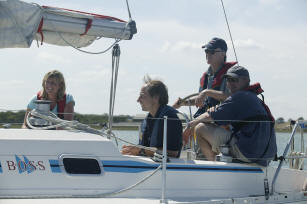
The instructor will tailor the course to your needs but our experience usually leads us to emphasize the following subjects: Passage Planning, Skippering Techniques, Man-overboard Recovery, Meteorology, Close Quarters Handling and Pilotage in Restricted Visibility.You are strongly advised to arrive for the course already having a thorough knowledge of the Collision Regulations, particularly in relation to lights, shapes and signals. The successful Yachtmaster Offshore candidate is an experienced yachtsman who has a theoretical knowledge to the level of the RYA Yachtmaster shore based course and will be able to skipper a cruising yacht on passages up to 150 miles from port. The RYA/MCA Yachtmaster Offshore Certificate of Competency is acknowledged throughout the World as the top sailing qualification.
Yachtmaster Pre Course Requirements
Before attempting the RYA / MCA Yachtmaster Offshore exam, you should have the following minimum experience;
50 days onboard sailing yachts over 24 feet
2,500 nautical miles (half of these should be in tidal waters)
5 non-stop passages over 60 miles - you should have skippered at least two of these and two should have been overnight
5 days of skippering
Theoretical knowledge and certificates
You should possess a good theoretical knowledge to the level of the RYA Yachtmaster shore based course . This includes a thorough knowledge of the IRPCS & radar. Candidates are required to hold an in date First Aid certificate (valid for three years from date of issue) and hold a VHF licence or Short Range Certificate - SRC
Exam preparation teaching ratio on board 4:1
Minimum age: 18
Not included in the course fee: Although accommodation is provided onboard, the mooring fees are split between the students. Wet weather jackets & salopettes are available to hire for £7.50 per day. A selection of accompanying course books & logbooks are available to purchase.
The RYA exam fee is not included and is payable prior to the exam, via the RYA online payment scheme. The exam fee is currently £241.00.
Students should allow for one evening meal ashore on a five day course. All other catering including three evening meals are provided onboard.
ENQUIRE ABOUT THIS COURSE
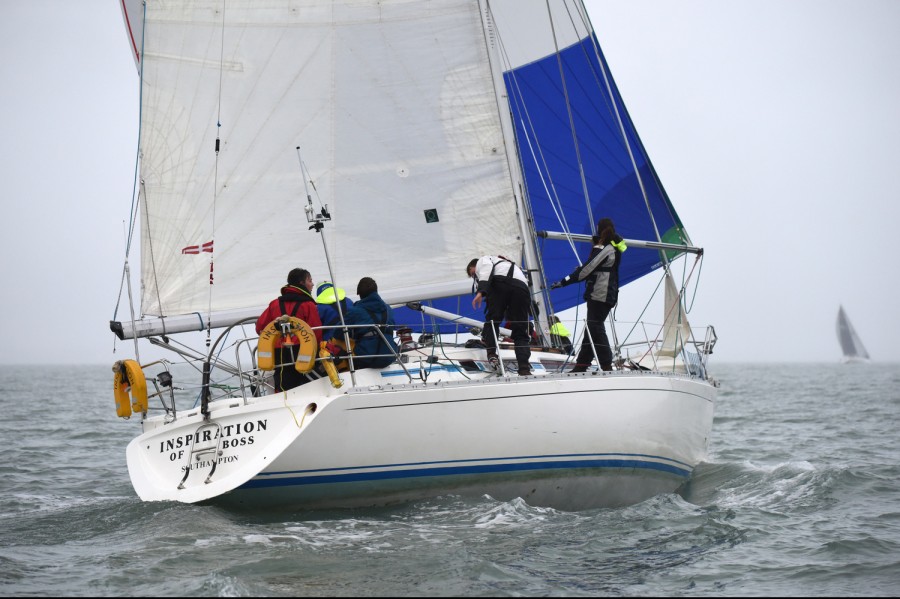
Availability and Booking
Step 1 select your course duration, this course is available in the following durations.
Please select the appropriate duration
Step 2 Select your dates
Your 7 days rya yachtmaster offshore exam preparation course.
Please select the start date
Select your start date
Step 3 add participant(s), please select your course duration, 7 days rya yachtmaster offshore exam preparation course.
Cookies help us deliver you the best experience possible. By using our website, you agree to our use of cookies. Learn more Close
RYA Yachtmaster Coastal / Yachtmaster Offshore Prep & Exam
Preparation course overview.
The RYA Yachtmaster Coastal / Yachtmaster Offshore Preparation course enables those who hold the required prerequisite experience to sit the RYA Yachtmaster Coastal or RYA Yachtmaster Offshore exam to fine tune their existing skills prior to sitting the practical exam.
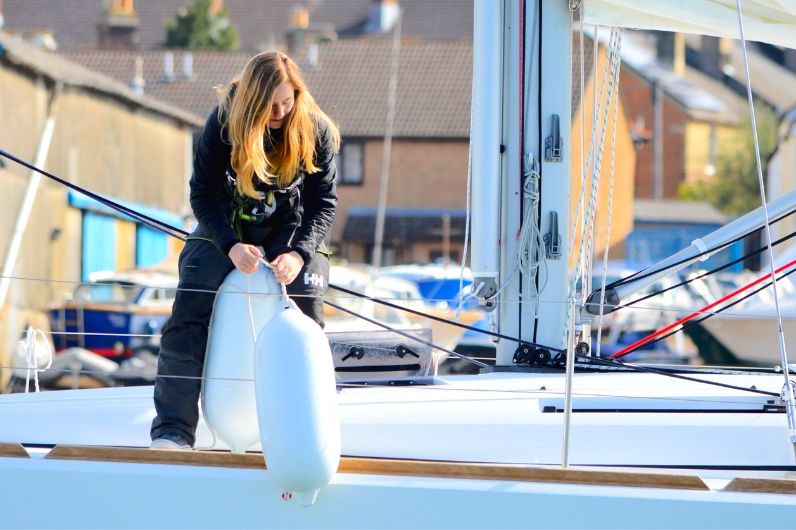
About the course
The preparation course is run over 5 days and designed to assess your level of competency against the RYA Yachtmaster Coastal or RYA Yachtmaster Offshore exam syllabus found in the RYA Yachtmaster Scheme Syllabus and Logbook (G158/15) and is intended to fine tune your existing skills and polish any areas of weakness prior to the exam. The subsequent exam is then run over two days, following the preparation course.
Prior the prep course, we advise that you read the exam syllabus and give yourself an honest appraisal of your strengths and weaknesses. Try to address any shortfalls beforehand and then during the preparation course be open with your instructor about your abilities and what you need to work on in the run up to your exam.
During the prep course your instructor will frequently update you on your progress and ability and recommend which exam you should aim for – whether Coastal or Offshore.
The syllabus is taught in a ratio of (4:1) students to instructor.
Please follow the link if you are looking for the RYA yachtmaster offshore professional course
Prerequisites
Rya yachtmaster coastal exam (sail).
Candidates must be aged 17 or over and require;
- A Radio Operators Qualification – A GMDSS Short Range Certificate (SRC) or higher grade of marine radio certificate
- A valid first aid certificate
- Seatime – 800 miles logged within 10 years prior to examination, 30 days living on board, two days as skipper and 12 night hours.
For holders of the RYA Coastal Skipper Practical course completion certificate, the seatime requirement is reduced to 400 miles, 2 days living on board, 12 night hours, two days as skipper.
Half of the qualifying seatime must have been gained in tidal waters. For sizes of vessel please refer to page 73 in the RYA Yachtmaster Scheme Syllabus and Logbook (G158/15).
RYA Yachtmaster Offshore Exam (Sail)
Candidates must be aged 18 or over and require;
- Seatime – 50 days, 2,500 miles, including at least five passages over 60 miles, acting as skipper for at least two of these passages and including two which have involved overnight passages. Five days’ experience as skipper.
At least half of the qualifying seatime must have been accrued in tidal waters. For sizes of vessel please refer to page 73 in the RYA Yachtmaster Scheme Syllabus and Logbook (G158/15).
Full details and definitions on qualifying passages can be found here .
Exam overviews
The exam will include an assessment of your skippering skills, boat handling, general seamanship, navigation, safety awareness and knowledge of the IRPCS (collision regulations), meteorology and signals. You will be set tasks to demonstrate your ability and may also be asked questions on any part of the syllabus for all practical and shorebased courses up to Yachtmaster Coastal level.
The exam will include an assessment of your skippering skills, boat handling, general seamanship, navigation, safety awareness and knowledge of the IRPCS, meteorology and signals, with particular emphasis on command skills, boat handling under sail and power in confined spaces, plus navigation and pilotage techniques in daylight, at night and in reduced visibility. Adverse weather conditions and coping with emergencies are also covered.
The examiner will set tasks to enable you to demonstrate your ability as skipper and may also ask questions on any part of the syllabus for all practical and shorebased courses up to RYA Yachtmaster Offshore.
Exam Duration
The exam will take around 8-12 hours per candidate candidate. No more than two candidates can be examined in 24 hours. Whilst one candidate is being examined the remaining candidates will act as crew.
Qualifications
RYA Yachtmaster Coastal Certification of Competence.
RYA Yachtmaster Offshore Certificate of Competence.
Dates and pricing
Register your interest.
- First name *
- Last name *
- How did you hear about UKSA? * –None– Cowes Harbour Handbook Event Facebook General Knowledge Google Ads Instagram Outdoor collateral Press Referral RYA Dinghy Show School trip Solent Handbook & Directory Southampton Boat Show The British Boat Owners Directory Website
- General notes
- Opt-in to receive course information and relevant offers
- Accept Privacy Policy and Terms and Conditions .
- Name This field is for validation purposes and should be left unchanged.
You may also be interested in
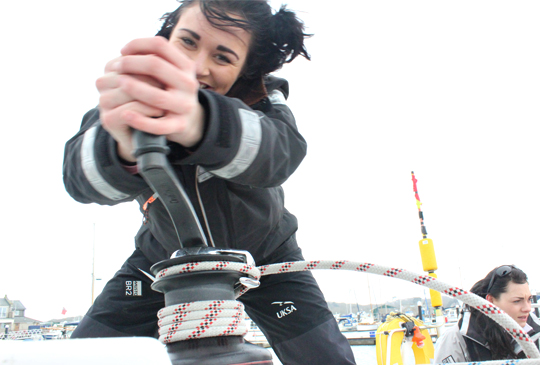
Need help finding the right course for you?
Speak to an advisor on +44 (0)1983 203001 or email us
- Professional qualifications
Gaining commercial endorsements
Find out which certificates can be endorsed and how to apply, what is a commercial endorsement.
A commercial endorsement is required for work on board British flagged vessels subject to the MCA's codes of practice for small commercial vessels.
A number of additional training courses and medical fitness certificates are required to be eligible for a commercial endorsement.
For Sail Cruising and Yachtmaster Instructors who only work in Australia, or holders of a Yachtmaster Sail CoC who require an AMSA endorsement to evidence eligibility for the AMSA Sailing Master CoC, read our guidance on Australia endorsements .
Which certificates can be commercially endorsed?
The following certificates can receive the standard commercial endorsement
Course completion certificates:
- RYA Level 2 Powerboat Handling Certificate
- RYA Advanced Powerboat Certificate (only if issued before 1 January 2005)
- RYA Day Skipper practical course completion certificate supported by a Day Skipper shorebased course completion certificate. The Day Skipper shorebased course may be undertaken online or in the classroom. In either case, the exams must be invigilated.
Certificates of competence:
- RYA Advanced Powerboat Certificate of Competence
- RYA Yachtmaster Coastal Certificate of Competence
- RYA Yachtmaster Offshore Certificate of Competence
- RYA Yachtmaster Ocean Certificate of Competence
In addition, the RYA Yachtmaster Offshore and Yachtmaster Ocean Certificates of Competence can receive the STCW endorsement .
Which certificate do I need?
The MCA's codes of practice categorise British flagged commercial yachts according to the type of yacht and the waters in which they operate. It is this categorisation that determines which of the above certificates you will need. See the MCA's table of manning requirements.
The RYA is a certifying authority for the codes of practice and can give advice on the coding and categorisation of commercial yachts.
Find out more about the Requirements for commercial craft .
How do I apply for a standard commercial endorsement?
Send the following items to RYA Certification, RYA House, Ensign Way, Hamble, Hampshire SO31 4YA:
- Your original certificate - see list above
- Your Professional Practices and Responsibilities certificate
- A commercial endorsement application form
- Your original, completed ML5 Medical Report form or ENG1 medical fitness form a photocopy of your ML5 if version MSF 4112 REV 02/23 or ENG1 Medical will be accepted*
- A copy of your RYA Basic Sea Survival certificate or STCW Personal Survival Techniques
- A copy of your RYA Marine Radio SRC Certificate or other acceptable GMDSS Marine Radio Operator's Certificate.
- A passport sized photo with your name on the back
- The application fee.
*We can only accept the latest version of the ML5 form (currently MSF 4112 / Rev 02/23). Skippers working in category 1 or 0 waters will need the ENG1 medical. A list of approved doctors can be found at the Maritime and Coastguard Agency .
Medical referrals
If your Doctor has entered any “Yes ticks” on your ML5 Medical Report form then your ML5 Medical will need to be referred onto the MCA to be reviewed and you will be required to complete Part D the Medical Review on page 12/16 of your ML5 Medical to provide the RYA with additional information to submit to the MCA. The MCA will not be able to give a decision on the issue of your Commercial endorsement if this section is not completed in full. The MCA will not accept any ML5 Medicals which are more than one year old.
If you are issued with a restricted ENG1 or ML5 Certificate of Medical Fitness, then your RYA Commercial endorsement will also be issued with restrictions. If you are considering a seagoing career the RYA and Maritime and Coastguard Agency strongly advise that you undergo a medical or sight test, which includes testing of colour and visual acuity, before starting training.
Restrictions on a ENG1 certificate will prevent you gaining STCW qualifications for vessels greater than 24m in length.
Professional Practices and Responsibilities course
Since April 2012 it has been a requirement for commercial endorsement holders to take the online Professional Practices and Responsibilities course (PPR).
All new applicants for the endorsement must take the course prior to submitting their application.
Existing commercial endorsement holders who gained their endorsement prior to April 2012 will be required to take the course prior to their next revalidation.
Find out more about PPR .
Re-validating your commercial endorsement
All commercial endorsements must be revalidated every five years by proving at least 150 days of actual sea service on appropriate vessels during the previous five years and be in possession of a valid medical fitness certificate.
If you are unable to prove the requisite sea service but are able to demonstrate that during at least half of the five-year period you have been employed on duties closely associated with the management and operation of one or more of the appropriate types of vessels, you may have your certificate considered for revalidation.
Validity of Commercial endorsements will be from date of processing for a maximum of 5 years.
Download the re-validation form .
Related resources
Commercial endorsement application form
Commercial endorsement e-validation form
MCA Medical Form
MCA Manning Requirements
STCW endorsement
Australia endorsements
- Certificates of Competence
RYA Certificates of Competence
Prove your ability and experience as a skipper with an rya certificate of competence.
Available at Advanced Powerboat and RYA Yachtmaster® Coastal, Offshore and Ocean level, RYA Certificates of Competence are well known qualifications that are highly respected worldwide.
Unlike other RYA qualifications, Certificates of Competence are not issued following a formal training course but are achieved by successfully completing an exam testing your skill, knowledge and experience.
So whether you’re a recreational boater looking to put your skills to the test, or need a professional qualification and commercial endorsement to work on the water, find out everything you need to know below.
The pinnacle of yachting qualifications. Find out what it takes to become an RYA Yachtmaster.
Provided you have sufficient experience, seatime and the required certificates, you can put yourself forward for an exam to test your skills and knowledge.
The RYA training schemes will take you all the way from beginner to exam level. As well as the required certification, there are a number of other RYA courses you might find useful.
With the backing of the Maritime and Coastguard Agency (MCA) we ensure RYA qualifications are recognised and respected throughout the world.
We are constantly monitoring and improving our courses and exams. Find out more about how we measure exam feedback to ensure the highest levels of satisfaction and confidence.

IMAGES
VIDEO
COMMENTS
RYA Yachtmaster Offshore exam pre-requisites. 5 passages over 60 miles long, which must include 2 overnight passages and 2 as skipper, which may be reduced to 3 passages including 1 overnight and 1 as skipper if the candidate already holds an RYA Yachtmaster Offshore Certificate of Competence 3. 1 At least half the qualifying sea time should be ...
Sea time requirements for the Yachtmaster Offshore exam. To sit the RYA Yachtmaster offshore exam, you are required to have, as a minimum, the following experience. All completed within the last ten years: A minimum of 2,500 miles are logged before you sit the exam. At least half the sea time must be in tidal waters.
The Yachtmaster Offshore Exam itself will take anywhere between 8 to 12 hours for a single candidate, or between 10 to 18 hours for two. Candidates will be met onboard by examiners who will outline what will happen during the test. Tasks will be set for the candidates to demonstrate their abilities as skippers of offshore cruising yachts.
The RYA Yachtmaster Offshore Preparation Course teaches the skills and techniques required to skipper safely on offshore passages by day and by night, including passage planning, preparation for sea, pilotage, yacht handling under sail and power, as well as in adverse weather conditions and emergencies. ... Pre-exam requirements are a GMDSS ...
An RYA/MCA Yachtmaster Offshore Certificate of Competence is often the ultimate aim of aspiring skippers. It is a well known, highly respected qualification worldwide, proving your experience and competence as a skipper. To attain the RYA/MCA Yachtmaster Offshore candidates must pass a practical examination of their skippering ability. A ...
Yachtmaster Offshore Requirements: In order to be eligible to take the Yachtmaster Offshore practical exam, candidates must meet the minimum sea time requirements. The RYA Yachtmaster Offshore minimum sea time prerequisites are as follows: 50 days at sea on yachts up to 500GT; 5 days as skipper on vessels less than 24m LOA; 2500 miles on yachts ...
The YachtmasterTM Offshore is competent to skipper a cruising yacht on any passage during which the yacht is no more than 150 miles from harbour. Full details of the exam syllabus and requirements are shown in the RYA Yachtmaster Scheme Syllabus and Logbook (G158) available from the webshop (see right). YachtmasterTM Offshore practical exams ...
Full RYA requirements for taking your Yachtmaster Offshore Exam are here. The purpose of the YM prep is to refine existing skills, not to start learning new ones. If you are considering taking your YM Offshore Exam you should already be an accomplished, experienced and adaptable sailor. The 5 day prep allows us to hone these skills and pick up ...
Price - £1533.00. The MCA/RYA Yachtmaster™ Offshore qualification is recognised and respected worldwide with candidates demonstrating a wide breadth of existing knowledge. The preparation part of the course provides enables you to get ready for your exam by covering refresher training in a number of key areas.
The qualifying mileage for this MCA-recognised qualification is 800, with passage and night-hour requirements being relaxed in comparison with 'Yachtmaster Offshore', which keeps its 2,500-mile entry level. Either is a proper Yachtmaster qualification and can be described as such. Only the often-dropped suffix distinguishes the two.
Full details of the exam syllabus and requirements are shown in the RYA's Sail Cruising Logbook (code G158) available from APY. For more detials on the qualifying milage and passages click here.. The RYA/MCA Yachtmaster™ Offshore Certificate of Competence exam will include an assessment of your skippering skills, boat handling, general seamanship, navigation, safety awareness and knowledge ...
RYA Yachtmaster Offshore exam pre-requisites. 5 passages over 60 miles long, which must include 2 overnight passages and 2 as skipper, which may be reduced to 3 passages including 1 overnight and 1 as skipper if the candidate already holds an RYA Yachtmaster Offshore Certificate of Competence 3. 1 At least half the qualifying sea time should be ...
Yachtmaster Offshore Exam Syllabus. Candidates may be given the opportunity to demonstrate knowledge of competence in the areas listed below. In each section the examiner will expect to see the candidate take full responsibility for the management of the yacht and crew. In Yachtmaster Offshore exams the candidate will be expected to demonstrate ...
RYA Yachtmaster Offshore Exam Prerequisites: Sea Time Requirements; 50 days at sea on yachts up to 500gt which may be reduced to 25 days if the candidate already holds an RYA Yachtmaster Offshore Certificate of Competence; 2,500 miles on yachts up to 500gt, which may be reduced to 1,250 miles if the candidate already holds an RYA Yachtmaster ...
The gold standard. The RYA Yachtmaster® Certificate of Competence is often the ultimate aim of aspiring skippers. It is a well known, highly respected qualification worldwide, proving your experience and competence as a skipper. Unlike other qualifications in the cruising programme, there is no formal training course to become an RYA Yachtmaster.
The RYA Yachtmaster Offshore certificate is the first penultimate qualification in the RYA's training programme with Yachtmaster Ocean and subsequent instructor certifications being the only RYA qualifications superior to it.. The certificate is only available after an independently assessed practical examination has been set and passed. The candidate is examined on the water by an RYA ...
Before attempting the RYA / MCA Yachtmaster Offshore exam, you should have the following minimum experience; 50 days onboard sailing yachts over 24 feet. 2,500 nautical miles (half of these should be in tidal waters) 5 non-stop passages over 60 miles - you should have skippered at least two of these and two should have been overnight.
The preparation course is run over 5 days and designed to assess your level of competency against the RYA Yachtmaster Coastal or RYA Yachtmaster Offshore exam syllabus found in the RYA Yachtmaster Scheme Syllabus and Logbook (G158/15) and is intended to fine tune your existing skills and polish any areas of weakness prior to the exam.
In addition, the RYA Yachtmaster Offshore and Yachtmaster Ocean Certificates of Competence can receive the STCW endorsement. ... See the MCA's table of manning requirements. The RYA is a certifying authority for the codes of practice and can give advice on the coding and categorisation of commercial yachts.
Prove your ability and experience as a skipper with an RYA Certificate of Competence. Available at Advanced Powerboat and RYA Yachtmaster® Coastal, Offshore and Ocean level, RYA Certificates of Competence are well known qualifications that are highly respected worldwide. Unlike other RYA qualifications, Certificates of Competence are not ...